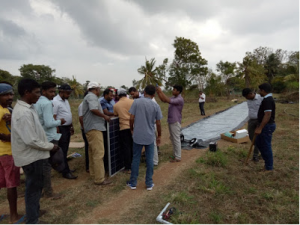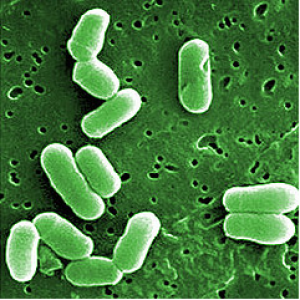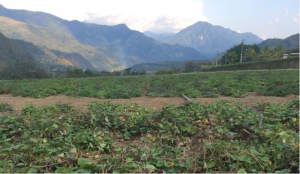Bioeconomy can help efforts to tackle pressing global concerns, including hunger, poverty, and climate change. This was according to Food and Agriculture Organization Deputy Director-General for Climate and Natural Resources, Maria Helena Semedo, speaking at the Global Bioeconomy Summit in Berlin, Germany on April 20, 2018.
Scientists from the University of Würzburg have investigated the impact of a new pesticide on the honeybee. In high doses, it has a negative impact on the insects' taste and cognition ability. In February 2018, the European Food Safety Authority (EFSA) confirmed that the pesticide group of neonicotinoids is harmful to bees. A novel pesticide manufactured by Bayer AG is therefore being discussed as an alternative; it contains flupyradifurone from the class of butenolides. The product goes by the brand name of Sivanto.
ICRISAT’s highest award for research, was announced by its Governing Board today. Dr Mamta Sharma and Dr Pooja Bhatnagar-Mathur are joint recipients of the Doreen Margaret Mashler Award for 2018, for significant work in their respective research fields of plant pathology and biotechnology at the International Crops Research Institute for the Semi-Arid Tropics (ICRISAT).
IRRI and the Food and Agriculture Organization of the United Nations through the Closing Rice Yield Gaps with Reduced Environmental Footprints (CORIGAP-PRO) and the European Union Support to District Development Programme increases the national capacity of Sri Lanka on postharvest technology for rice by conducting a workshop on drying and storage technologies.
Succinate is one of the most important bio-based building block chemical because of its numerous potential applications. However, efficient production of succinate from lignocellulosic feedstock is rarely reported. A study conducted by Yufeng Mao, Guiying Li, and Zhishuai Chang of Tianjin University in China aimed to engineer Corynebacterium glutamicum to efficiently produce succinate from lignocellulosic hydrolysate.
Kinetochore, a protein super‐complex on the centromere of chromosomes, controls chromosome segregation during cell division. The NDC80 complex, made up of NDC80, NUF2, SPC24 and SPC25 proteins, connects spindle fibers to the kinetochore. While it is found in most species, functional studies of this complex are rare in Arabidopsis.
New research led by Oxford University reveals that sweet potato likely arrived naturally in Polynesia in pre-human times, challenging the belief that one of the world's most important crops was transported from America to Polynesia by people. Christopher Columbus' arrival in America in 1492 marked the beginning of the great age of exploration in the world.
The Agricultural Biotechnology Research Center of the next Generation Bio-Green 21 Project was established through a public contest by Rural Development Administration (RDA) in South Korea. Prof. Park Soon-ki of Kyungpook National University was selected as the research team leader in January 2018.
The Kenyan government is banking on adoption of Bt cotton to revive the textiles and apparel industry and increase the contribution of the manufacturing sector to the country's GDP from the current 9.5 percent to 15 percent by 2022. Speaking during a national biotechnology stakeholders' luncheon, adviser on textile value chain at the Ministry of Industry, Trade and Cooperatives Mr.
Cassava features prominently in the crop portfolios of Cambodia, Thailand and Vietnam. The crop plays a key role in the local economies of all three countries, with Thailand and Vietnam being the two largest global exporters of cassava products, and Cambodia relying on cassava as its second most cultivated agricultural crop. Over the past 20 years cassava production in these regions has risen dramatically,


 Curently online :
Curently online :
 Total visitors :
Total visitors :









